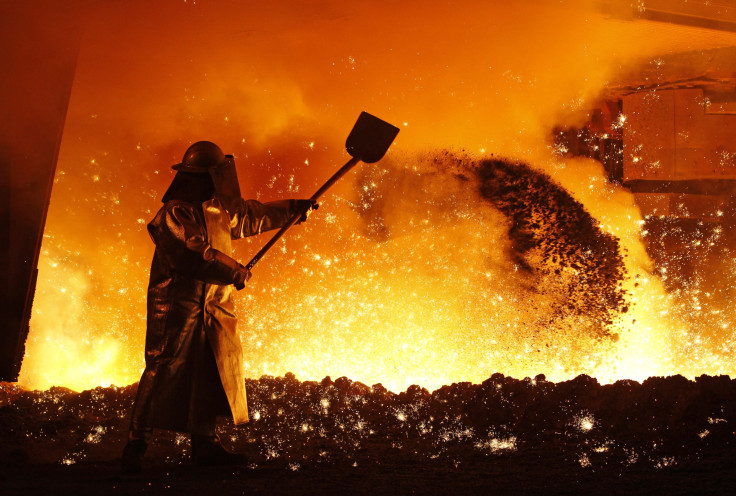Eurozone Factory Growth Weakens In April Despite Heavy Discounting

Eurozone factories did slightly better in April, with output not losing as much momentum as initially thought but growth in activity remaining weak despite the second-deepest price-cutting since early 2010, a survey showed on Monday.
The surveys paint a mixed picture of the wider economy.
Manufacturing growth was strong in Italy and Spain last month and Germany showed signs of reviving, but activity in France contracted at the steepest rate in a year.
Markit's manufacturing Purchasing Managers' Index (PMI) for the eurozone rose to just 51.7 from March's 51.6, slightly better than an earlier flash estimate of 51.5. A reading above 50 indicates growth.
"The survey is signaling an anemic annual rate of growth of manufacturing production of just less than 1 percent, which is half the pace seen in the months leading up to the recent slowdown," said Chris Williamson, chief economist at Markit.
"The survey data therefore so far show no signs of European Central Bank stimulus or the weaker euro helping to revive the manufacturing sector, at least for the euro area as a whole."
The eurozone economy grew 0.6 percent quarter-on-quarter in the January-March period, early data showed on Friday. While that was more than expected, inflation once again fell below zero last month as energy prices dropped.
What is likely to make for grim readings in the survey for ECB policymakers is the deep discounting manufacturers have to resort to in order to drum up new business, even though deflationary pressures appear to be easing slightly.
The output price index came in below the flash reading of 47.7 at 47.4, higher than March's 47.1. However, the latest result was the second-lowest since early 2010.
A sub-index measuring output, which feeds into a composite PMI due on Wednesday and is seen as a good guide to growth, fell to 52.6 from 53.1 but was slightly better than the flash reading of 52.5.
© Copyright Thomson Reuters 2024. All rights reserved.







